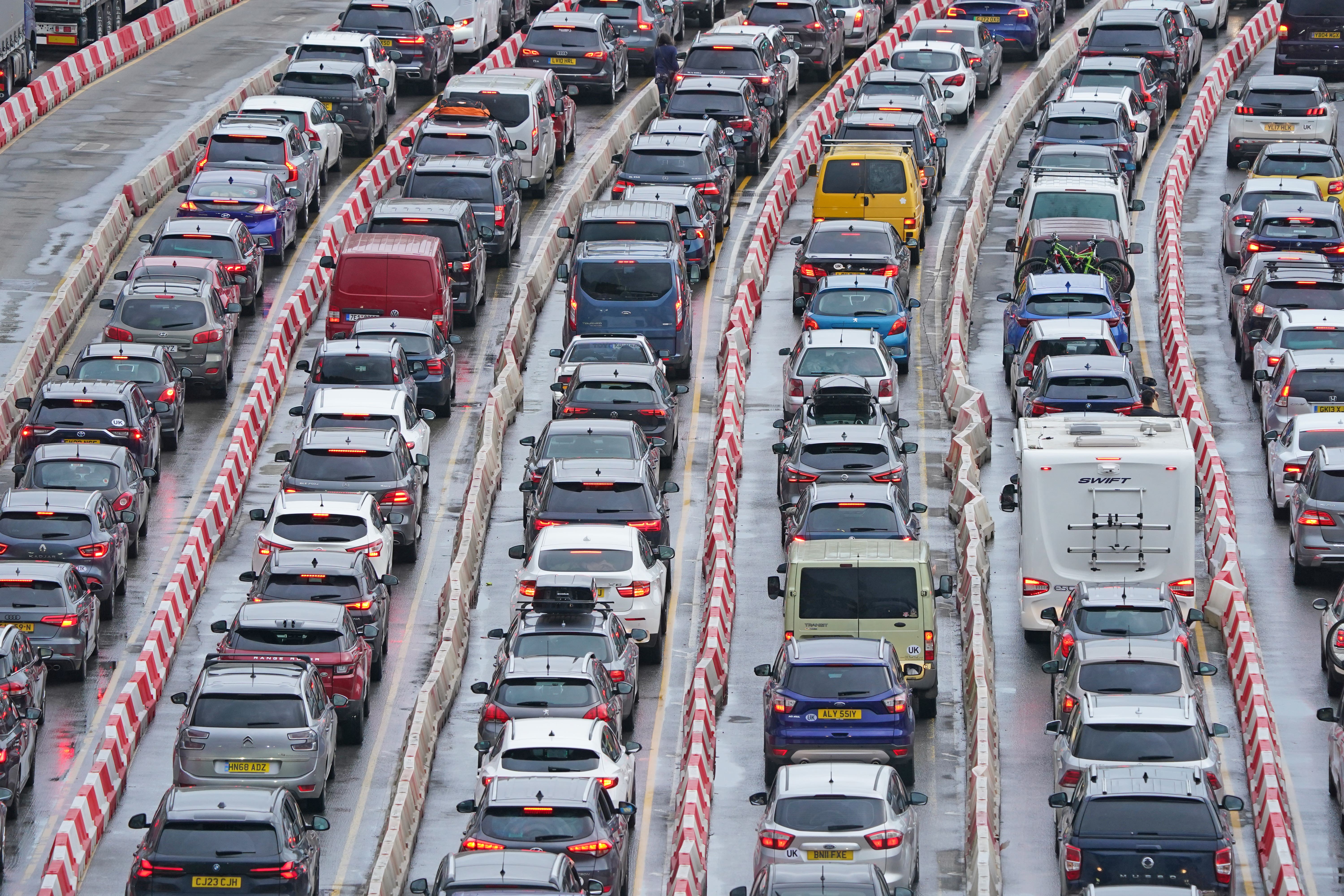Delays at Dover under new EU system could be worse than 14 hours, MPs told
The Kent port and the surrounding area could be hit by major disruption when the Entry-Exit System launches.

Warnings of 14-hour delays at Kent border controls could understate the impact of a new EU scheme, MPs were told.
The Port of Dover and the surrounding area could be hit by major disruption when the EU Entry-Exit System (EES) launches, the Commons’ European Scrutiny Committee heard.
The system is expected to involve travellers from non-EU countries such as the UK having their fingerprints scanned and a photograph taken to register them on a database the first time they enter a member state.
There are concerns this will cause long queues for train and ferry passengers travelling from Dover as border checks for people entering the EU are carried out there before they embark on cross-Channel journeys.
There has been speculation the EES will come into force this autumn following several delays.
Giving evidence to the committee, Kent County Council leader Roger Gough said Ashford Borough Council’s suggestion that wait times could reach 14 hours “does not seem to us unrealistic”.
He went on: “If you had extra aggravating pressures, weather or whatever, (the situation) could be worse.”
Mr Gough explained that “it takes very little” for disruption to cause a major build-up of traffic in Kent.
He added: “It starts usually in and around the town of Dover. It rapidly moves to other parts of the county and has that effect very, very quickly.”
The Port of Dover and surrounding roads have seen multiple episodes of gridlocked traffic over the past few years, with post-Brexit checks adding to waiting times.
Deirdre Wells, chief executive at tourism organisation Visit Kent, told the committee that “media coverage of Kent being a car park” during previous incidents “impacts our reputation” and affects local businesses.
She said: “We need to sort something that will alleviate the bottleneck at our ports to ensure that whether you’re coming to the county for business purposes or domestic purposes, you can access the county easily, but actually that the experience of inbound and outbound travel… is professional, welcoming and speedy.”
A Government spokesperson said: “The EES is an EU programme overseen by the European Commission, with EU member states responsible for implementing it at border crossing points.
“We are working closely with the Kent Resilience Forum as well as with port authorities, ferry operators and industry to develop robust contingency plans to minimise the impact of delays when these new checks are introduced.”
Bookmark popover
Removed from bookmarks